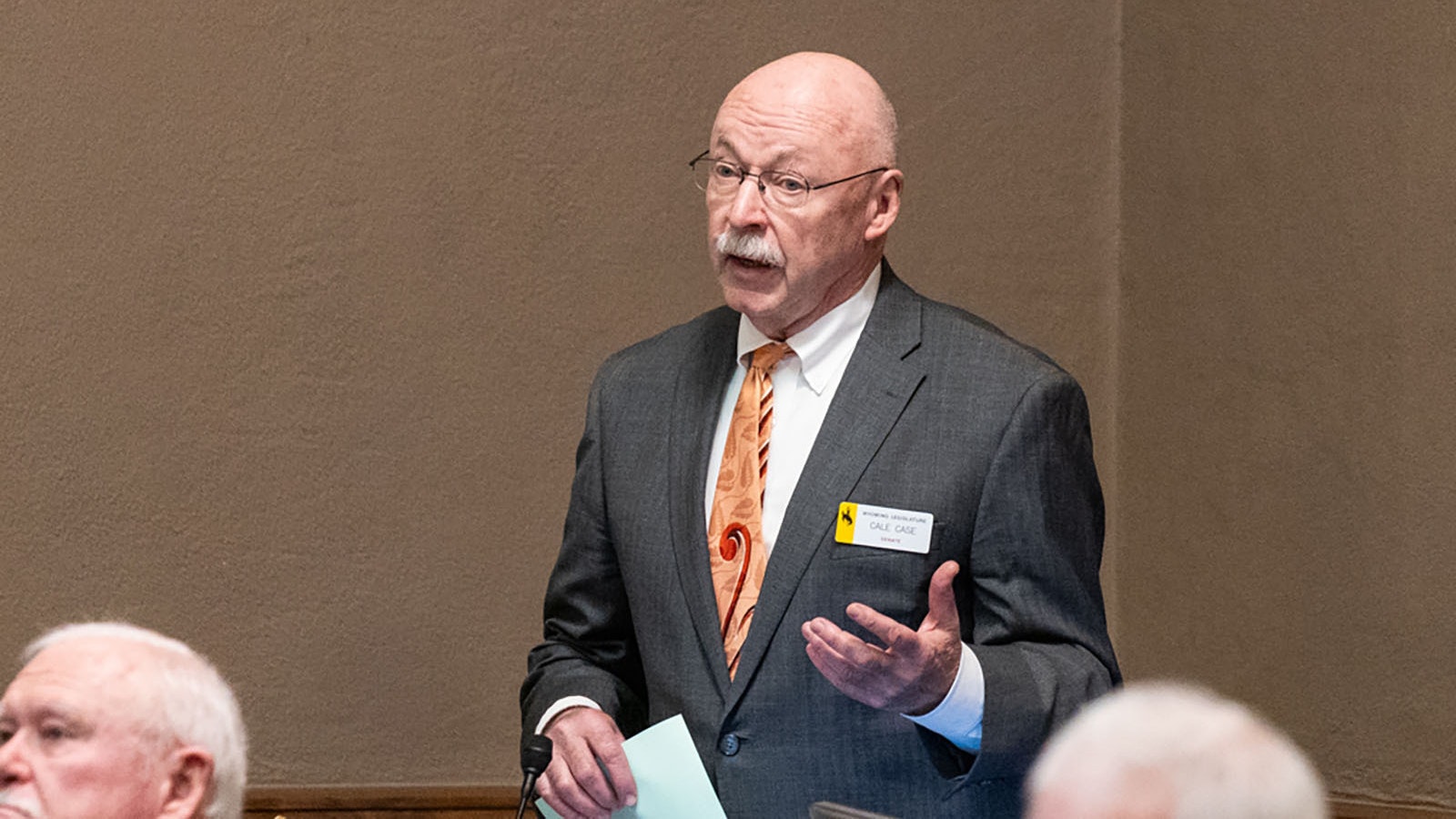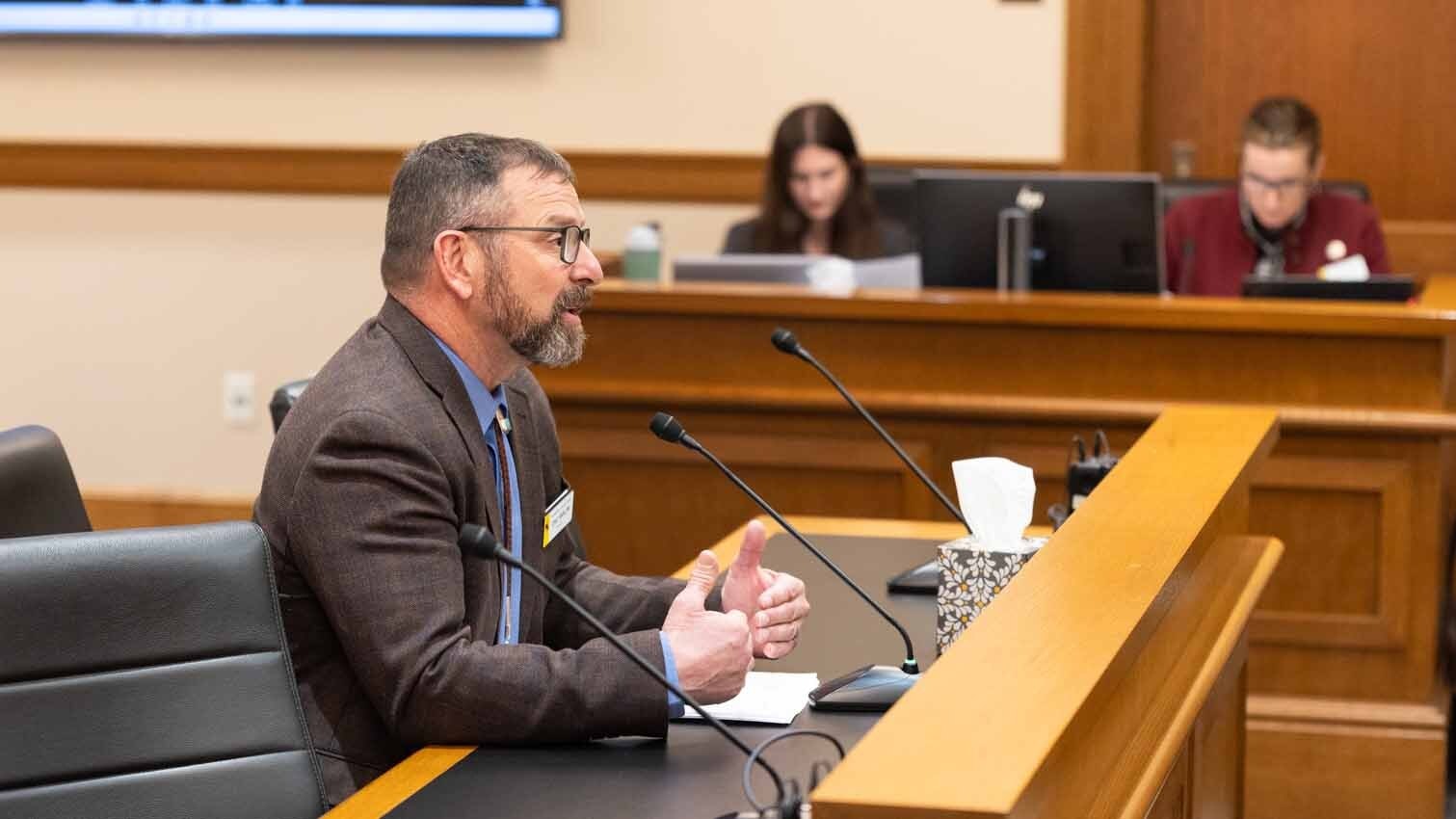Gov. Mark Gordon doesn’t have many cards left to play with in the state’s opposition to the Bureau of Land Management’s controversial Resource Management Plan for what happens on 3.6 million acres in southwest Wyoming. Meanwhile, a Wyoming BLM official expects the plan to be final before President Joe Biden leaves office.
The Resource Management Plan is a legal document that charts the future management of BLM land in the Rock Springs region, outlining what areas can and can’t be used for mining, recreation and travel.
The plan, which is close to becoming final, has been met with serious opposition in and around Wyoming since first developed. And while changes and compromises were made from its original version, Gordon and other Wyoming officials and residents continue to express serious opposition to the document that would curtail mining and increase conservation on federal lands in the southwest corner of the state.
A spokesperson for the governor told Cowboy State Daily on Wednesday that Gordon plans to file an appeal on the response he received to his opposition of the resource management plan last month. He has until Dec. 18.
The BLM’s response to Gordon’s consistency review offered no more points of compromise or adjustments to the plan.
Kimberlee Foster, BLM Rock Springs field manager, said Gordon’s appeal will be handled by BLM Director Tracy Stone-Manning.
It will be Stone-Manning’s call to decide if more modifications are made to the plan based on the governor’s recommendations, or to keep it as is.
Foster said after that decision is made, a final record of decision will be issued on the plan, which she expects to come before the end of the year or in early January before the end of Biden’s term in office.
“We’re very close to having it ready to go,” Foster said.
As first reported by Cowboy State Daily, the new Republican-led Congress and President-elect Donald Trump could move to significantly change or kill the plan altogether, a revamp that’s been in the works for 14 years and undergone substantial public input.
The Congressional Review Act allows Congress to overturn certain federal agency actions, a rare but not unprecedented event. The Review Act has been used to overturn 20 rules, most recently three during the 117th Congress of 2021-222.
Once a rule is filed, Congress has 60 days to review it.
However, an overturn of the RMP would be a significant move as it could mark the first time that the Review Act has been applied to a federal land-use plan.
Governor’s Action
On Oct. 22, Gordon sent a letter to the BLM outlining his ongoing concerns with the project. This marked the final input from the state of Wyoming before the BLM makes their final changes and signs a Record of Decision (ROD) on the plan.
Gordon said the RMP remains inconsistent with existing federal, state and local laws and policies.
“It appears to be driven by a national political agenda, not the cooperative process between states, counties and the federal government envisioned in the Federal Land Policy Management Act (FLPMA),” he said in a press release. “Moving from an untenable to an unworkable decision does not make their decision any more consistent.”
Andrew Archuleta, Wyoming BLM state director, disagreed with Gordon in a Nov. 18 response. Archuleta pointed out that he gave Gordon and other Wyoming agencies an advanced look at the plan two weeks before it was published in the Federal Register.
“BLM Wyoming recognizes that collaboration between Wyoming BLM, the state of Wyoming, and the public, which includes the citizens of Wyoming, is very important to the success of our land management efforts,” he wrote. “While all parties may not agree at times, I am very appreciative of the respectful and open communication with your staff during the formation of the proposed RMP.”
Gordon said his consistency review provided a blueprint for the BLM to deliver a management plan that most Wyoming stakeholders could live with while addressing special designations like Areas of Critical Environmental Concern (ACECs), National Historic Trail corridors and Wyoming’s right to manage its land.
“I encourage the BLM to closely review and follow my recommendations,” he said.

BLM’s Response
The BLM does not appear to be doing that.
Gordon argues that the BLM failed to prove that the proposed restrictions would prevent irreparable environmental damage from happening. He also said the BLM failed to examine the cumulative impacts of the ACECs and other management protections, and failed to explain why an ACEC area was truly unique or given its determined size.
The BLM countered that it analyzed four alternative plans before it landed on the final environmental impact statement and already broke down the evaluation process for all of its ACECs.
Gordon also said the management actions lacked a balanced approach that included multipurpose uses, accused the BLM of rushing its ACEC proposals and said the agency failed to comply with federal law.
Gordon also said the plan landlocks state parcels by placing more restrictive management practices on the BLM land that surrounds them.
Archuleta responded that no decisions on BLM land can be made relative to state land and the agency’s plan for the Rock Springs area recognizes all valid and existing rights.
The BLM also said it has the right to decrease mineral leasing and never has to grant leases in the first place.
Archuleta finished up his response reiterating the public collaboration that took place on the plan that included more than 25 local, state and federal partners, a 60-day formal scoping period with four public scoping meetings, a socioeconomic workshop, two public outreach meetings, a public information workshop throughout the planning period, and a 152-day public comment period with three open house meetings after the draft EIS was published.
“The proposed RMP reflects more than 35,000 public comments, recommendations from the Greater Little Mountain Coalition, and proposals from the Governor’s Task Force, in addition to input from the cooperating agencies,” he wrote.
Conservation advocates have also issued support for the final RMP while acknowledging that it isn’t perfect.
“The RMP isn’t perfect, yet we appreciate the enormous task the BLM undertook to review and respond to tens of thousands of comments,” the Greater Little Mountain Coalition wrote in a November op-ed. “Failing to finalize this RMP would waste the years of hard work that the GLMC and many others have invested in this planning effort. Further, it would mean that the current management plan, which dates to 1997, would remain in place for an unacceptably longer period of time.”
Delegation’s Plans
All three members of Wyoming’s congressional delegation have indicated they plan to fight the Rock Springs management plan as soon as they get the chance,
“If enacted, the Rock Springs Resource Management Plan would be a catastrophic blow to Wyoming’s economy and the local industries that rely on multiple use for grazing, energy production and recreation,” U.S. Sen. Cynthia Lummis told Cowboy State Daily in November. “I have fought to stop this plan every step of the way and will work with President Trump to ensure the RMP is overturned.”
U.S. Rep. Harriet Hageman agreed.
“President Trump is recruiting a great team to execute his America first agenda, cut through the Washington bureaucracy and fix many of the problems created by the Biden-Harris administration over the last four years,” she told Cowboy State Daily. “I am looking forward to working with all of his appointees to enact good laws and repeal bad rules and guidance.”
Leo Wolfson can be reached at leo@cowboystatedaily.com.





